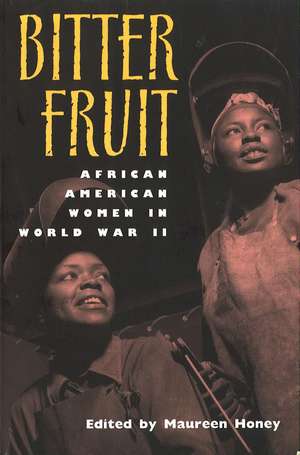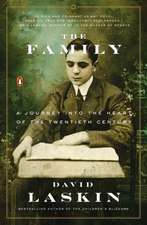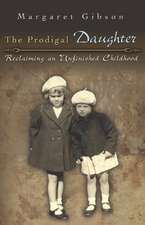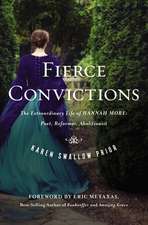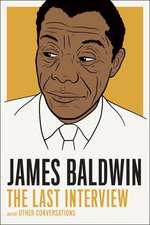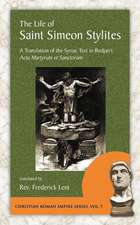Bitter Fruit: African American Women in World War II
Editat de Maureen Honeyen Limba Engleză Paperback – 25 noi 1999 – vârsta ani
Despite the participation of African American women in all aspects of home-front activity during World War II, advertisements, recruitment posters, and newsreels portrayed largely white women as army nurses, defense plant workers, concerned mothers, and steadfast wives. This sea of white faces left for posterity images such as Rosie the Riveter, obscuring the contributions that African American women made to the war effort. In Bitter Fruit, Maureen Honey corrects this distorted picture of women's roles in World War II by collecting photos, essays, fiction, and poetry by and about black women from the four leading African American periodicals of the war period: Negro Digest, The Crisis, Opportunity, and Negro Story.
Mostly appearing for the first time since their original publication, the materials in Bitter Fruit feature black women operating technical machinery, working in army uniforms, entertaining audiences, and pursuing a college education. The articles praise the women's accomplishments as pioneers working toward racial equality; the fiction and poetry depict female characters in roles other than domestic servants and give voice to the bitterness arising from discrimination that many women felt. With these various images, Honey masterfully presents the roots of the postwar civil rights movement and the leading roles black women played in it.
Containing works from eighty writers, this anthology includes forty African American women authors, most of whose work has not been published since the war. Of particular note are poems and short stories anthologized for the first time, including Ann Petry's first story, Octavia Wynbush's last work of fiction, and three poems by Harlem Renaissance writer Georgia Douglas Johnson. Uniting these various writers was their desire to write in the midst of a worldwide military conflict with dramatic potential for ending segregation and opening doors for women at home.
Traditional anthologies of African American literature jump from the Harlem Renaissance to the 1960s with little or no reference to the decades between those periods. Bitter Fruit not only illuminates the literature of these decades but also presents an image of black women as community activists that undercuts gender stereotypes of the era. As Honey concludes in her introduction, "African American women found an empowered voice during the war, one that anticipates the fruit of their wartime effort to break silence, to challenge limits, and to change forever the terms of their lives."
Mostly appearing for the first time since their original publication, the materials in Bitter Fruit feature black women operating technical machinery, working in army uniforms, entertaining audiences, and pursuing a college education. The articles praise the women's accomplishments as pioneers working toward racial equality; the fiction and poetry depict female characters in roles other than domestic servants and give voice to the bitterness arising from discrimination that many women felt. With these various images, Honey masterfully presents the roots of the postwar civil rights movement and the leading roles black women played in it.
Containing works from eighty writers, this anthology includes forty African American women authors, most of whose work has not been published since the war. Of particular note are poems and short stories anthologized for the first time, including Ann Petry's first story, Octavia Wynbush's last work of fiction, and three poems by Harlem Renaissance writer Georgia Douglas Johnson. Uniting these various writers was their desire to write in the midst of a worldwide military conflict with dramatic potential for ending segregation and opening doors for women at home.
Traditional anthologies of African American literature jump from the Harlem Renaissance to the 1960s with little or no reference to the decades between those periods. Bitter Fruit not only illuminates the literature of these decades but also presents an image of black women as community activists that undercuts gender stereotypes of the era. As Honey concludes in her introduction, "African American women found an empowered voice during the war, one that anticipates the fruit of their wartime effort to break silence, to challenge limits, and to change forever the terms of their lives."
Preț: 308.18 lei
Nou
Puncte Express: 462
Preț estimativ în valută:
58.98€ • 61.20$ • 49.29£
58.98€ • 61.20$ • 49.29£
Carte tipărită la comandă
Livrare economică 17-31 martie
Preluare comenzi: 021 569.72.76
Specificații
ISBN-13: 9780826212658
ISBN-10: 0826212654
Pagini: 424
Ilustrații: 25 illus.
Dimensiuni: 156 x 235 x 25 mm
Greutate: 0.63 kg
Ediția:First Edition
Editura: University of Missouri Press
Colecția University of Missouri
ISBN-10: 0826212654
Pagini: 424
Ilustrații: 25 illus.
Dimensiuni: 156 x 235 x 25 mm
Greutate: 0.63 kg
Ediția:First Edition
Editura: University of Missouri Press
Colecția University of Missouri
Recenzii
"In reclaiming these...documentary items and this absolutely fascinating material, Maureen Honey has performed an invaluable service....Scholars and general readers alike will delight in, and experience moments of despair over, the rich and meaningful materials that constitute Bitter Fruit."—Darlene Clark Hine
"It brings to life the realities of wartime race and sex discrimination."—Journal of the West
Notă biografică
About the Editor: Maureen Honey is Professor of English and Women's Studies at the University of Nebraska. She is the author of several books, including Creating Rosie the Riveter: Class, Gender, and Propaganda during World War II and Shadowed Dreams: Women's Poetry of the Harlem Renaissance.
